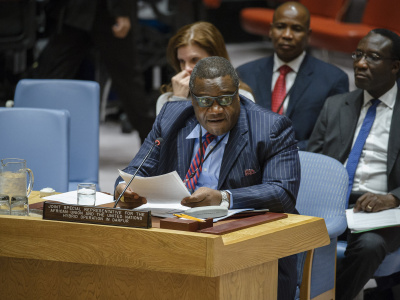
Can the 0.2% levy fund peace in Africa? A stronger AU-UN partnership in accordance with WTO rules
Part of the African Union’s 0.2% import levy is meant to finance peace support operations on the continent. Although there was no legal challenge, the question among some members of the World Trade Organization (WTO) is whether the levy breaches WTO regulations.
Summary
In this briefing note we explore a possible legal route for the African Union to finance its peace and security programmes – including its peace and security operations – through a 0.2% import levy. The brief’s focus on peace and security activities is not limited to peace operations but incorporates conflict prevention and governance, mediation, and preventive diplomacy.
The United Nations (UN) and the African Union (AU) both aim at securing sustainable financing for peace and security activities. Until recently though, peace support operations in Africa have mainly been funded through the EU’s African Peace Facility, with AU member states providing limited funding. To minimise its financial dependency on external partners, the AU launched an initiative to increase member states’ assessed contributions and to seek alternative ways to finance itself. In 2015, the AU Assembly adopted a decision on the assessed contribution of member states. Over a period of five years, starting in 2016, 100% of the AU’s operations budget, 75% of its programme budget, and 25% of the AU-led peace support operations would be funded by the African Union’s member states.
To meet this goal, in 2016 the AU Assembly of Heads of State and Government decided to institute and implement a 0.2% levy on all eligible imported goods into the continent to finance the AU operational, programme and peace support operations budgets, starting in 2017. The Assembly also decided that the Peace Fund will be endowed from the funds received from the 0.2% levy. However, some members of the World Trade Organization (WTO) wondered whether the levy might be in contravention of trade principles under the WTO.
This briefing note argues that Article XXI(c) of the General Agreement on Tariffs and Trade (GATT) may offer a possible justification for the use of the 0.2% levy in pursuance of obligations under the UN Charter to maintain international peace and security. The article can be subject to broad literal interpretation, and refers to any action a country may take in pursuance of its obligations under the UN Charter for the maintenance of international peace and security, hence also the AU’s obligation to fund peace support operations and the Peace Fund to guarantee peace on the continent.




